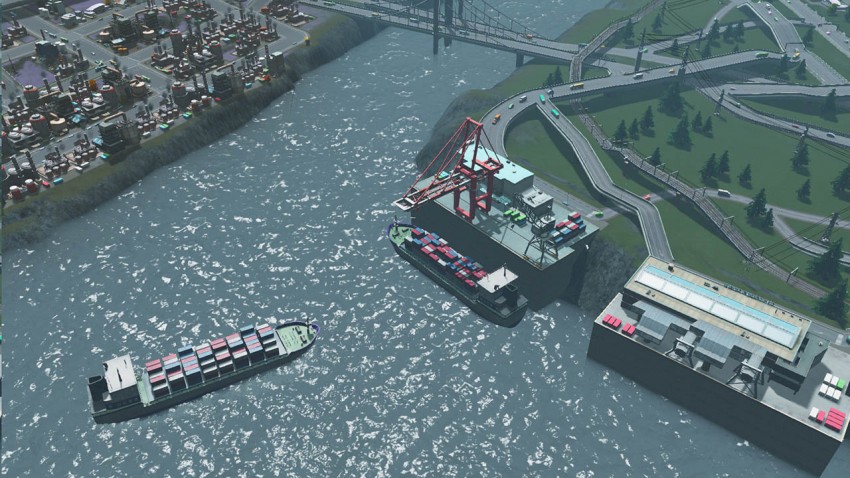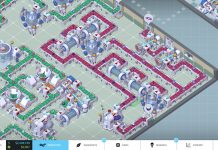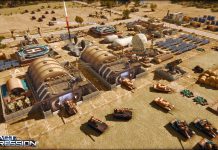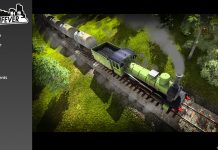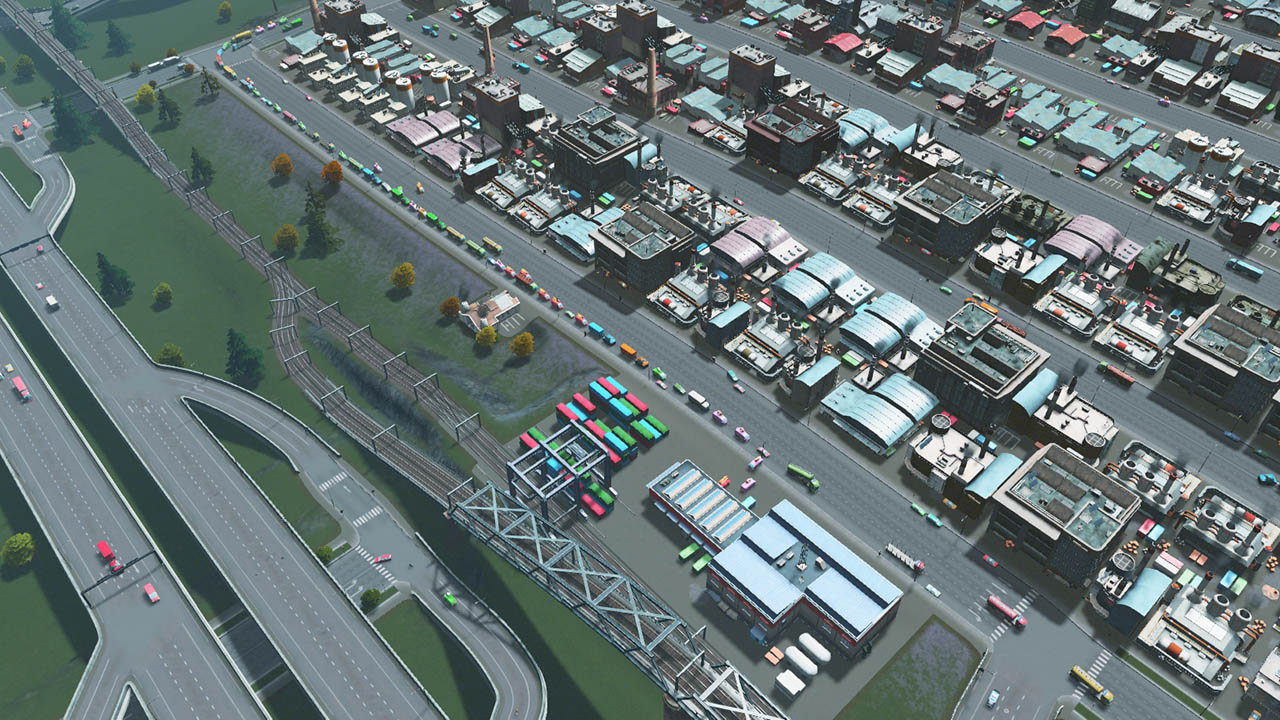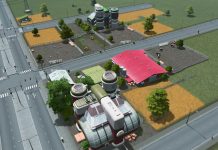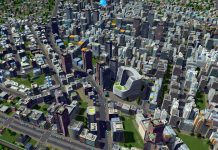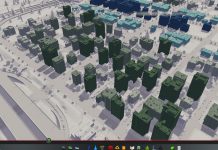Introduction
[postad]In Cities Skylines the industries are your main source of work for your population. Not only do your citizens need to drive to work, they also use freight trucks to import and export goods. They are one of the biggest sources for traffic issues.
Your industries also interacts with commerce. By providing your stores with local goods their profits will increase and so will your tax income!
Zoning
Like residential and commerce the industrial zones have to be zoned in next to local roads. Starting an industry sector is as easy as laying down a few roads and zoning it yellow.
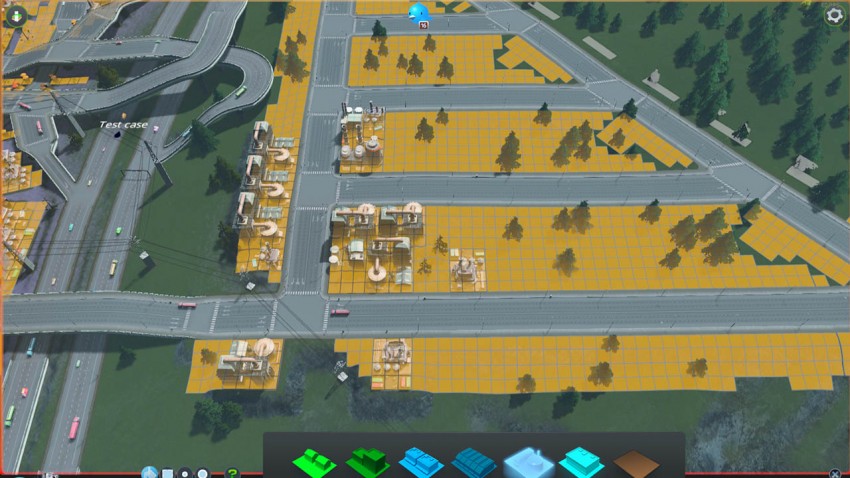
Import/Export and goods deliveries
In Cities Skylines industrial zones have an important interaction through the game. Basically your industry will produce goods. In order to do this raw materials are required. Usually these materials are not available locally. Instead your industries will order these materials “off map” from different cities. Trucks will then enter your city and attempt to provide your industries with the necessary goods.
Once your industry has produced some goods the reverse process gets triggered. A truck will have to actually sell the goods. It will try to make a local delivery to your Commercial zones. When this is not possible it will export goods “off map” to other cities. If there are no buyers eventually the building will shut down and become abandoned.
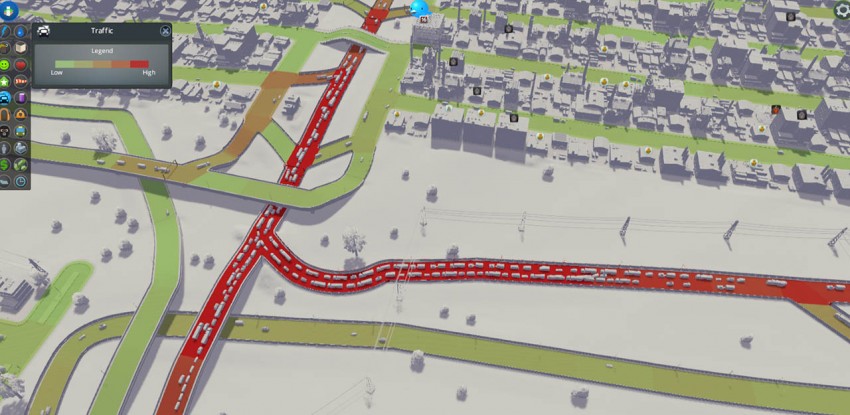
Offices
Office zones fulfill industrial demands. Meaning that when there is a high industry demand you can also choose to zone office space instead of zoning yellow industry. Although they fulfill the same demand the offices are quite different from industries. They require highly educated workers but do not have cargo deliveries. Therefore offices have a few advantages and downsides.
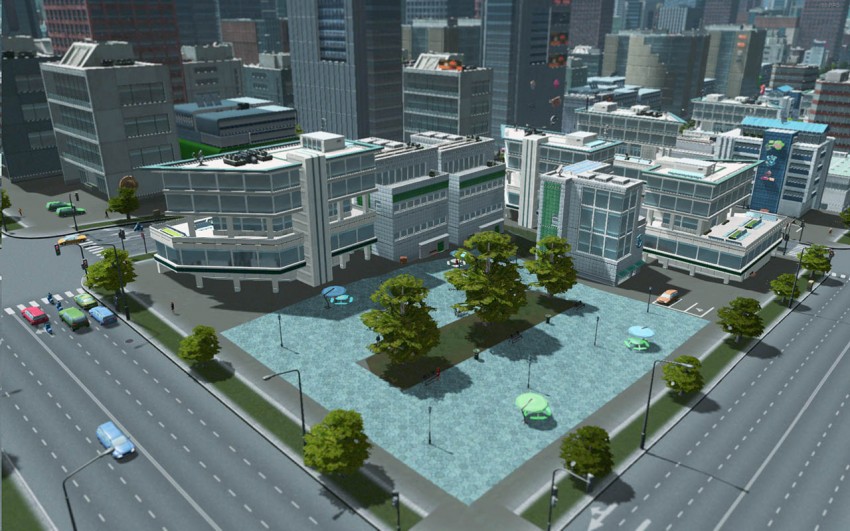
Advantages of Offices
- Generate no pollution (not even noise)
- Can be built directly next to Residential areas allowing your citizens to walk to work (alleviates traffic).
- Provides your highly educated citizens with jobs
Disadvantages of Offices
- Do not produce goods to be sold in your commercial zones or exported (lowers profit for commercial zones)
- Fewer job spots per building meaning you need to zone more space to provide the same number of jobs
- Require highly educated citizens as workers
Generic industries
When you zone a yellow industrial zone this will be filled with generic industries. Generic industries start out as a level 1 building with a modest amount of workers. Their level can increase to level 3 which increases tax revenue and number of job slots. To level up your industry building you will need to provide enough services (fire, police, death care, etc).
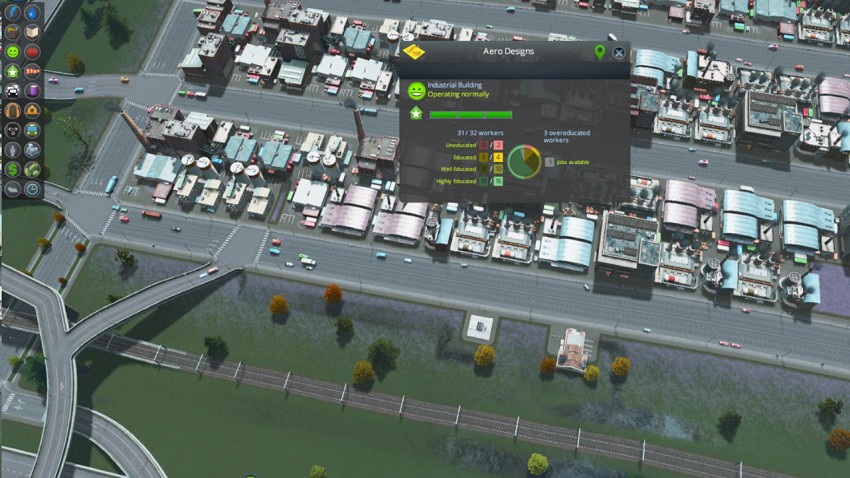
Industrial specialization
Cities Skylines features industrial specializations. By creating a district you can assign one of the specialties to your district. Whereas generic industries can level from 1 to 3 the specialized industries only feature a single level. However with a maximum of 24 workers per building they are they are similar to level 2 generic industry. Each of these specializations has their own tax benefits and cost. Keep in mind that while Forest and Fertile land can be re-used but the Oil and Ore deposits are not infinite. You can run out of those resources. Generally it will take a very long to deplete them.
Overview table
| Resource type | Renewable | Tax income (compared to generic industry) |
Pollution rate (compared to generic industry) |
Requirements (compared to generic industry) |
| Oil | No | +35% | +30% | Requires 15% more electricity |
| Ore | No | +20% | +20% | Requires 10% more electricity |
| Forest | Yes | +10% | +7% | Requires 7% more electricity |
| Fertile land | Yes | +10% | Doesn’t pollute ground, turns all fresh water used into waste water |
Requires 25% more water |
If you want to learn more about how to create industry specializations then please check this guide: Cities Skylines Guide – How to use Industrial specialization
Cargo Train Station
When you provide your industries access to a train cargo station the whole dynamic of your industry zones will change. Instead of leaving the map through the highways most of your trucks will now visit your Cargo station. Trains will then spawn to export, or import goods. This way the “off map” highways have to deal with less traffic. A cargo train station also provides a “service” bonus meaning it can help you reach level 3 generic industry!
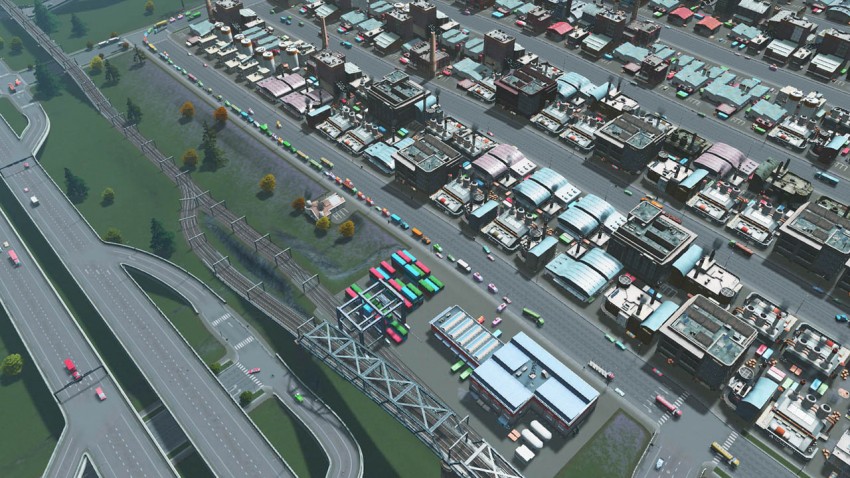
Cargo harbor
Just like the Train Cargo Station the Cargo Harbor allows your trucks to export or import goods, saving them a trip outside the city. Unfortunately the cargo harbor can only be constructed on rivers with a sea trade route available. Therefore it is usually hard to keep it close to your industry.
